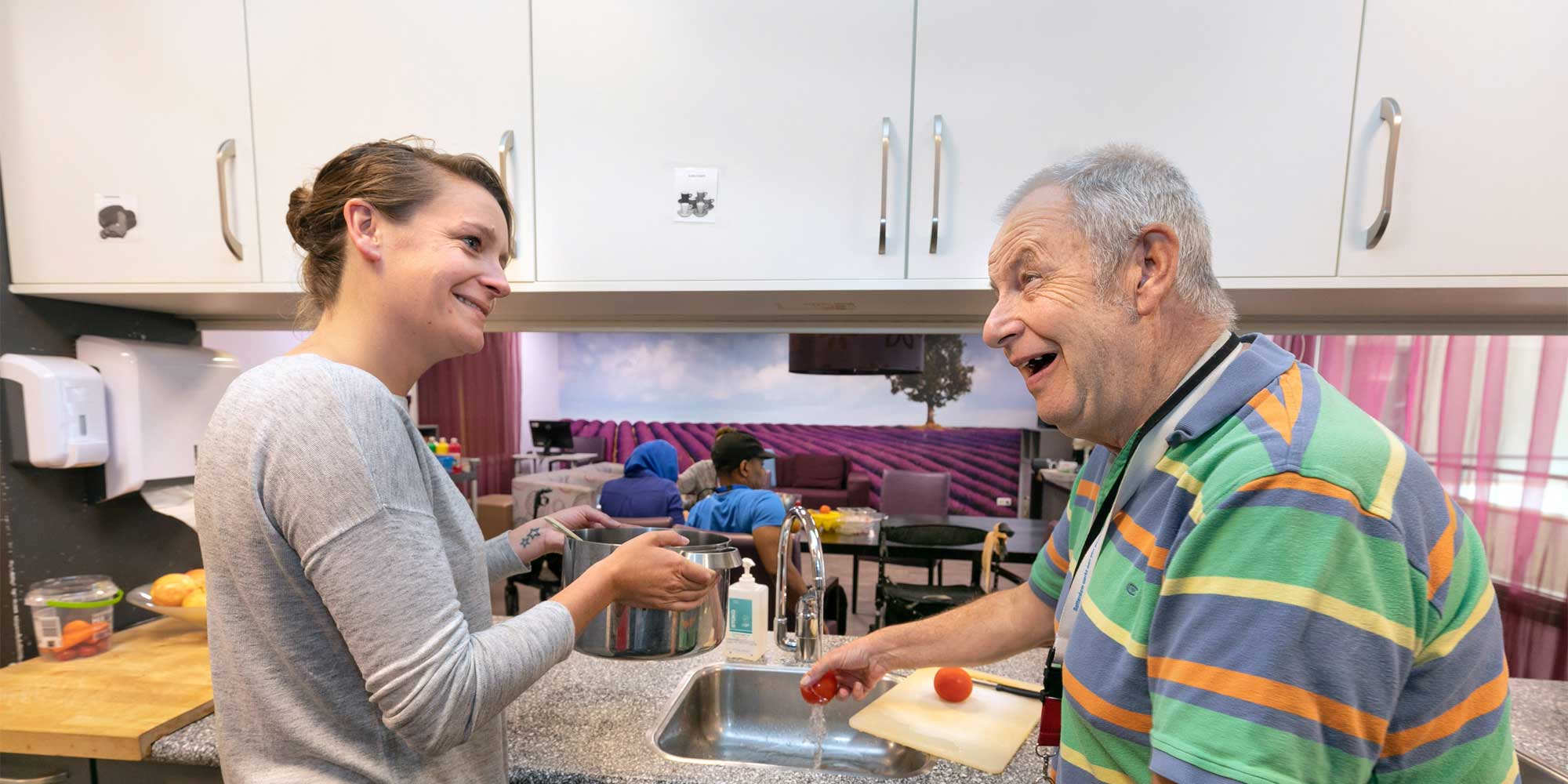
Belgian police force completes secure, mobile-first transformation
Information sharing is now much easier for officers and support staff – thanks to Microsoft Teams on a powerful and secure digital platform.


Wouter Ouweneel
Azure Busines Lead — Windows Virtual Desktop
“Our goal is to create an environment where people with mental disabilities can feel safe, secure and happy.”
Marcella van Kraaij, Digital Transformation Advisor at Dutch healthcare provider Humanitas-DMH, is discussing her organization’s key objectives – and how the technology her team recently adopted is helping it to achieve them.
Every day, the carers and volunteers working at Humanitas-DMH provide emotional and practical support to thousands of people with mental disabilities or social behavioral needs. “Humanitas-DMH helps people with behavioral and cognitive problems find their place in society,” van Kraaij explains, “and, through its carers, to stay in close contact with relatives, neighbors or municipalities.”
A selfless task that brings unmeasurable comfort to more than 3,000 people across the organization’s network – but it can only succeed if backed by secure, flexible and easy-to-use digital support.
In January 2020 Humanitas-DMH made this possible when it successfully transferred its core applications to the Azure cloud with Windows Virtual Desktop. And, a year on, Humanitas-DMH can look back at 2020 and assess the numerous benefits of embracing the cloud
With more than 1,400 employees working across the Netherlands, Humanitas-DMH was founded in 1983 to provide services such as ambulatory guidance, career coaching and initiatives to tackle loneliness.
Having expanded its network reach over recent years, the organization was searching for new digital tools that would make the work of its care teams as simple and seamless as possible, while also keeping its data secure.
“We wanted our caretakers to be able to access their work anywhere, in any place, at any time,” explains van Kraaij.
“That led us to Windows Virtual Desktop. It allows our carers to access our applications at home, or from a client’s home, in a completely secure way.”
Behind Humanitas-DMH’s decision to adopt Windows Virtual Desktop was their need to digitize operations without disrupting or complicating their carers’ already busy workload.
“We want to work in a new world from an IT perspective: no more domains and no more logging on to different systems, but rather a single sign-on for every application within three clicks,” says van Kraaij.
This led Humanitas-DMH to drop its previously slow and outdated Remote Desktop Services environment in favor of Windows Virtual Desktop. The organization partnered with Microsoft and local Cloud integrator Wortell to deploy a brand-new environment that would simplify its employees’ work.
“Humanitas-DMH’s previous Remote Desktop Services (RDS) environment was pretty outdated, running an early version of the Windows server and causing slow logons and few insights on the state of the environment itself,” explains Freek Berson, Remoting Windows Evangelist and Microsoft MVP at Wortell.
“So, we ran a proof of concept with a small group of people within the organization to see if the applications were running correctly and what it could mean to have the entire organization shift from the RDS towards Windows Virtual Desktop.
“That’s how Humanitas-DMH became one of the first customers in the Netherlands to go live with the production environment when it became available.”
Windows Virtual Desktop is proving increasingly advantageous to Humanitas-DMH. Its benefits include greater security, flexibility and reduced time and costs, especially when it comes to core applications such as Plancare, Sp Expert and Exact Globe.
Whether used by healthcare workers to access client files or by management for employee and financial administration, these apps are always protected and easy to access.
“The fact that they are not installed on physical devices, but rather accessed using a remote protocol means that no data is left behind on workers’ devices,” says Berson. “So, all the data that they consume always stays on the cloud and all these applications are accessed using Azure AD, subject to conditional access and multifactor authentication.
“We can also make sure that no data can be copied between remote applications and local applications, if that’s needed as well,” he continues. “And since this data is all stored in Azure, data encryption is also available.”
In addition, the autoscaling provided by Windows Virtual Desktop helps drive down costs on Azure consumption and offers insights on usage.
“Humanitas-DMH is a 24/7 organization, so we need applications to be available at all times,” explains Berson. “However, there’s a decrease in users during the evening, so we’re using autoscaling to make sure that we scale the environment based on the needs.”
“Time is another benefit,” adds van Kraaij, “because workers are always three clicks away from accessing their applications. This also helps increase flexibility.”
Humanitas-DMH is also leveraging the same Windows Virtual Desktop environment for Administration, allowing access to a set of management tools in order to perform changes on the backend.
This, says van Kraaij, adds key value to Humanitas-DMH’s work as it enables a simplified user experience while allowing administrators to remain on top of operations.
“[This is] the strength of the solution,” she continues. “It’s so easy, so simple. First time users come into our environment and know exactly what to do.”
Berson recognizes that the world in 2021 is a very different place from when Windows Virtual Desktop was first rolled out across Humanitas-DMH.
“The fact that all employees now have their applications on their devices without having to be in a physical office was very beneficial for Humanitas-DMH,” he says. “This implementation really came at the right time for the organization.”
The organization is now looking at the future and considering the next steps.
As van Kraaij puts it, “We want to be a trendsetter in our field, but also explain how we do it and share our knowledge to other companies.”
“We want to make a difference, save costs and expand as quickly as we can,” concludes Sander van Kooten, Business Lead Care, Education & Government at Wortell “This is what we are proud of doing with Humanitas-DMH, who keep on proving to be ahead of digital transformation, wanting to use IT to do things differently.”